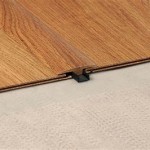Vinyl Stone Flooring Tiles: A Comprehensive Overview
Vinyl stone flooring tiles represent a popular and versatile flooring option that combines the aesthetic appeal of natural stone with the practical benefits of vinyl. These tiles are manufactured to mimic the appearance of various stone types, such as marble, granite, slate, and travertine, offering a cost-effective and durable alternative to their genuine counterparts. The composition and construction of vinyl stone tiles contribute to their widespread adoption in residential and commercial settings.
Typically, vinyl stone tiles consist of several layers. The core layer provides the tile's structural foundation and dimensional stability. This core is often composed of a dense, waterproof material that resists warping and expansion due to moisture or temperature fluctuations. Above the core layer is the print layer, which features a high-resolution image of natural stone. Advanced printing technologies ensure a realistic and detailed replication of the stone's texture, color variations, and veining patterns. A protective wear layer, usually made of a transparent, durable material like polyurethane, is applied over the print layer to guard against scratches, scuffs, and stains. This wear layer significantly extends the lifespan of the flooring and reduces the need for frequent maintenance.
Installation methods for vinyl stone tiles vary depending on the specific product and manufacturer recommendations. Common methods include glue-down, click-lock, and peel-and-stick installations. Glue-down installations involve applying an adhesive to the subfloor and carefully positioning the tiles, resulting in a secure and permanent bond. Click-lock systems feature interlocking edges that allow the tiles to be easily connected without the need for glue, providing a floating floor that can be easily removed or replaced. Peel-and-stick tiles, equipped with a self-adhesive backing, offer a simple and convenient installation process suitable for DIY projects. The choice of installation method often depends on factors such as the size of the area, the condition of the subfloor, and the installer's skill level.
Durability and Resistance Characteristics
One of the primary advantages of vinyl stone flooring tiles is their exceptional durability. The robust construction of these tiles, combined with the protective wear layer, makes them highly resistant to wear and tear, including scratches, dents, and fading. The wear layer's thickness, typically measured in mils (thousandths of an inch), is a key indicator of the tile's durability. Thicker wear layers provide greater protection and are recommended for high-traffic areas, such as hallways, kitchens, and commercial spaces. The ability of vinyl stone tiles to withstand heavy foot traffic and resist damage from everyday use makes them a practical flooring solution for both residential and commercial applications.
Furthermore, vinyl stone tiles exhibit excellent water resistance, making them suitable for installation in moisture-prone areas like bathrooms, kitchens, and basements. The waterproof core layer prevents water from penetrating the tile, protecting the subfloor from damage and preventing the growth of mold and mildew. Unlike natural stone, which can be porous and susceptible to staining and water damage, vinyl stone tiles provide a waterproof and hygienic surface that is easy to clean and maintain. This water resistance also contributes to the tile's overall longevity and reduces the risk of costly repairs or replacements.
In addition to their resistance to water and wear, vinyl stone tiles are also resistant to staining. The protective wear layer creates a barrier that prevents spills and stains from penetrating the tile's surface. Common household spills, such as coffee, juice, and grease, can be easily wiped away without leaving permanent marks. This stain resistance simplifies the cleaning process and helps to maintain the tile's appearance over time. The use of mild cleaning solutions and regular sweeping or vacuuming is typically sufficient to keep vinyl stone tiles looking their best.
Aesthetic Versatility and Design Options
Vinyl stone flooring tiles offer a wide range of aesthetic options, allowing homeowners and designers to achieve the desired look and feel in any space. These tiles are available in various sizes, shapes, colors, and textures, replicating the appearance of different types of natural stone. From the classic elegance of marble to the rustic charm of slate, vinyl stone tiles can mimic the unique characteristics of a variety of stone materials. This versatility allows for creative design possibilities and enables the creation of customized flooring solutions that complement the overall décor of the room.
The realistic stone patterns and textures achieved through advanced printing technologies enhance the visual appeal of vinyl stone tiles. The detailed replication of natural stone's veining, color variations, and surface imperfections creates a convincing and authentic look. Some vinyl stone tiles even feature embossed textures that further simulate the feel of natural stone underfoot. This attention to detail contributes to the tile's ability to mimic the appearance of genuine stone, making it a visually appealing and cost-effective alternative.
Moreover, vinyl stone tiles can be used in conjunction with other flooring materials to create unique and visually interesting designs. Combining vinyl stone tiles with wood-look planks, ceramic tiles, or carpet can add depth and dimension to a space. The ability to mix and match different flooring materials allows for the creation of customized flooring designs that reflect personal style and preferences. For example, vinyl stone tiles can be used to create a border around a room or to define specific areas within a larger space. The versatility of vinyl stone tiles makes them a valuable tool for interior design and renovation projects.
Maintenance Requirements and Cost Considerations
Maintaining vinyl stone flooring tiles is relatively simple and straightforward. Regular sweeping or vacuuming is typically sufficient to remove dirt, dust, and debris. For more thorough cleaning, a damp mop and mild cleaning solution can be used to wipe the tiles. Harsh chemicals, abrasive cleaners, and scouring pads should be avoided, as they can damage the wear layer and dull the tile's finish. Promptly wiping up spills can prevent staining and maintain the tile's appearance. With proper care and maintenance, vinyl stone tiles can retain their beauty and functionality for many years.
Unlike natural stone, which often requires sealing and polishing to maintain its appearance, vinyl stone tiles do not require these specialized treatments. The protective wear layer provides a durable and easy-to-clean surface that resists staining, scratching, and fading. This low-maintenance characteristic makes vinyl stone tiles a convenient and practical flooring option for busy households and commercial environments. The reduced need for specialized cleaning products and treatments can also save time and money in the long run.
In terms of cost, vinyl stone flooring tiles are generally more affordable than natural stone. The lower material costs and simpler installation processes contribute to the overall cost savings. While the initial investment in vinyl stone tiles may be higher than some other flooring options, such as sheet vinyl, the long-term benefits of durability, water resistance, and low maintenance make them a cost-effective choice. The ability to mimic the appearance of expensive natural stone at a fraction of the cost makes vinyl stone tiles an attractive option for budget-conscious homeowners and businesses. The lifespan of vinyl stone tiles, combined with their low maintenance requirements, further contributes to their overall cost-effectiveness.
The environmental impact of vinyl stone tile is also sometimes factored into consideration. While vinyl itself is a synthetic material, advancements have led to more sustainable manufacturing processes and the use of recycled content in some products. Consumers concerned about environmental sustainability should research manufacturers that prioritize eco-friendly practices and offer vinyl stone tiles with certifications indicating low VOC emissions and the use of recycled materials. Comparing products and understanding their environmental credentials can help make an informed decision.

Vinyl Stone Flooring Guide Lx Hausys

Stone Tile Lvt Flooring Free Samples

Stone Texture Vinyl Floor Tiles Gray White For Bathroom Marble Luxury Tile Easy To Clean

Luxury Vinyl Tile Realistic Stone Effect Flooring Hamilton

Stone Vinyl Flooring In Houston Vbaf

Lvt Natural Stone Tile Effect 600mm X 300mm 6 5mm

Lifeproof Breezy Stone 6 Mil X 16 In W 32 L Lock Waterproof Vinyl Tile Flooring 24 9 Sqft Case I442103l The Home Depot

Vinyl Tile Flooring Guide What You Should Know Inc

Remus Stone Silver Rigid Luxury Vinyl Flooring Tile Giant

Stunning Stone Look Luxury Vinyl Tile
Related Posts








